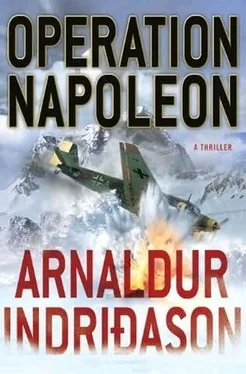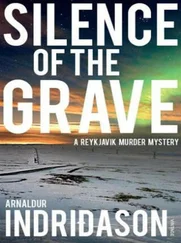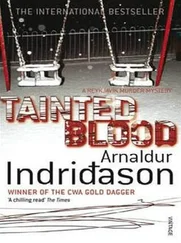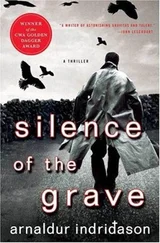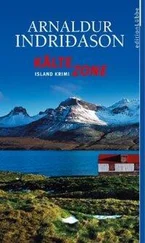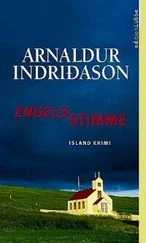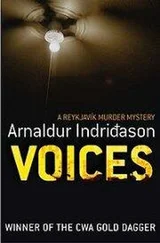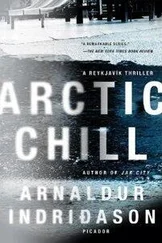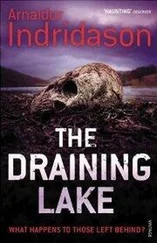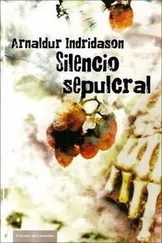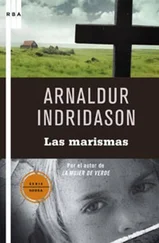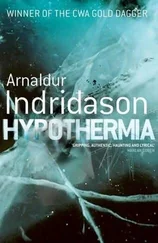SATURDAY 30 JANUARY, 0500 GMT
Arnold’s directions proved accurate. Before he left them at the administration block, he had told Steve how to get out of the base without using a gate or climbing over the wire. Kristín could not begin to imagine what sort of favour he owed Steve, but it must have been considerable. She preferred not to think about it.
After leaving Thompson, they headed west, away from the airport and Leifur Eiríksson terminal. The military traffic in the area had intensified; police roadblocks had been set up at intervals around the base and soldiers now patrolled the perimeter fence on the Keflavík side. To the south and west the base was bracketed by sea. Avoiding the more frequented ways, they darted from building to building, shielded by the darkness, until the built-up area petered out, giving way to lava and snowfields which ran down to the shore.
The sky was cloudless and full of stars, and with the moon lighting their way they covered the distance quickly. Arnold’s detailed description of the landmarks soon led them to the Zodiac. All they needed now was to follow the shore south past Hvalsnes and into Kirkjuvogur bay, to the hamlet of Hafnir, where they could abandon the boat and hitch a lift into Reykjavík. The Zodiac had a quiet outboard motor, a twenty-horsepower engine that chugged into life at the first attempt. As Steve steered away from shore, Kristín had the impression that this was not the first time he had navigated along this stretch of coast. An icy wind buffeted her face and although the boat did not achieve much of a speed, it smacked into the waves at regular intervals, forcing her to cling with all her strength to the rope fastened at the bows. Her anorak was soon drenched by the spray.
A quarter of an hour later they abandoned the boat at Hafnir. They had not spoken at all during the journey.
‘Is this how they smuggle the drugs?’ Kristín asked at last, once Steve had made the rubber dinghy fast.
‘I wouldn’t know,’ he said. They left it at that.
As they made their way north from Hafnir towards the Reykjanes dual carriageway, they saw the distant reddish-brown glow illuminating the sky above Keflavík and Njardvík. After about forty-five minutes’ walk in complete silence they noticed headlights approaching out of the darkness behind them. The car slowed down as it drew near, finally stopping a little way ahead of them. It was a baker on his way to Keflavík; he offered them a lift up to the main road. From there it should not take them long to hitch a lift to Reykjavík.
Michael Thompson had given them the Reykjavík address of Leo Stiller’s widow, Sarah Steinkamp, in case she could shed any more light on Stiller’s theories. Apart from that, he claimed to know little about her situation and was unwilling to discuss her; he looked in on her every few years for the sake of his old commanding officer, he said, but she was a difficult person – angry, bitter and depressive – so he never stayed long.
She lived in the old Thingholt district, on the ground floor of a small, dilapidated two-storey wooden house. The corrugated-iron cladding had rusted away where it met the ground and the small windows were only single-glazed. Long ago, the front door had been painted green but most of the paint had now flaked off. A large fir tree stood in the middle of the small garden that had once been enclosed by a wooden fence, the palings of which were now rotten and had largely collapsed.
Kristín and Steve approached the house with caution; they had seen no sign of their pursuers but still peered nervously into the darkness that surrounded them. Despite being confident that they had escaped unseen from the base, they were taking no chances. They stepped into the circle of weak light shed by the tiny lamp above Sarah Steinkamp’s door, an icy wind chapping their faces. It was about seven in the morning.
Steve pressed the doorbell. There was a small copper plate on the door with a name engraved on it in faint lettering. It was almost illegible but Kristín thought she could make out ‘Sarah Steinkamp’. There were no other names; the upstairs apartment must be unoccupied. Its dark windows stared down at them like empty eye-sockets. Steve pushed the bell again. Even when he put his ear to the door he could hear no sign of life inside.
He rang the bell yet again, more forcefully this time but still nothing happened. They took a few steps backwards from the doorstep and out into the glow of the streetlamps, straining their eyes towards the windows on the raised ground floor but could not see any lights inside. Steve rang the bell a fourth time to be sure and they heard it jangling deep inside the house. They had just turned away, on the point of abandoning hope, when a ground floor window opened. The unexpected noise in the still morning made them both jump. A tremulous woman’s voice asked what was going on.
‘Are you Sarah Steinkamp?’ Steve asked. There was no answer. ‘I’m sorry to call so early in the morning but it’s urgent.’
‘What do you want with her? Who are you?’
‘It’s about…’ Steve began. ‘Could you let us in, please? My name’s Steve; this is my friend Kristín. She’s Icelandic.’
‘Icelandic?’ said the quavering voice. They could not make out her face in the darkness, just a faint, disembodied silhouette at the window.
‘And you? You don’t sound Icelandic.’
‘I’m American. We need your help. Could you let us in? You’re Leo Stiller’s widow, aren’t you?’
‘Leo? What do you want with Leo? Leo’s dead.’
‘We know that. We want to talk to you about Leo,’ Steve said, doing his best to sound agreeable.
They stood motionless for a long time in front of the house, unable to see even whether the figure in the gloom was still at the window. Just as they had given up all hope, the door opened a crack, revealing a woman of tiny, almost dwarflike, stature. The security chain rattled.
‘What do you want with my Leo?’ she asked, her eyes fixed on Kristín. She spoke English with a thick European accent that Kristín could not place exactly but suspected might be Eastern European.
‘It’s because he was a pilot,’ Steve said. ‘We need some information about him.’
‘What kind of information? What are you talking about?’
‘Could we come in and talk to you?’ Steve asked.
‘No,’ the woman said irritably. ‘You can’t.’
‘It’s terribly urgent that we talk to you,’ Kristín said, taking two steps towards the door. ‘You are Sarah, aren’t you? Sarah Steinkamp?’
‘Who are you?’ the woman asked. ‘How do you know my name?’
‘My name’s Kristín. My brother’s in danger. A retired pilot, Michael Thompson, suggested we talk to you. You know him, don’t you? He lives on the base.’
‘I know Thompson,’ the woman said. ‘He was a friend of Leo’s. Why’s your brother in danger?’
‘Because of a plane,’ Kristín said. ‘Your husband was a pilot at the base, wasn’t he?’
‘Yes, Leo was a pilot.’
‘That’s why we want to talk to you,’ said Kristín, who had inched her way forwards to a spot beside the front door. She had a better view of the woman now: long grey hair, a wrinkled face, her body painfully thin and a little hunched, clad in a worn, brown dressing gown. Admittedly, they had disturbed her at the crack of dawn but Kristín sensed that their sudden appearance had also disturbed her on some more profound level. She hesitated. It was an uneasy stand-off, the woman half-hidden by the door as if she felt a physical threat.
‘What plane?’ the woman repeated.
‘A plane on the Vatnajökull glacier,’ Kristín replied.
‘On Vatnajökull?’ the little woman said in surprise.
‘Yes, my brother saw a plane on the glacier and then I lost contact with him. He saw soldiers too.’
Читать дальше
